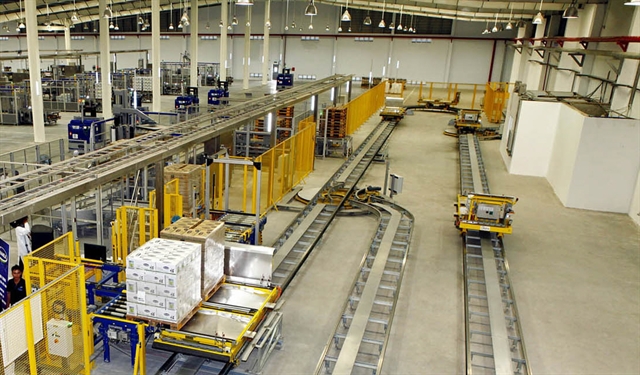 Opinion
Opinion

Nguyễn Đình Cung, director of the Central Economic Management Institute, talks to the newspaper Nhân dân (People) on the need for a legal institution to develop innovation and creativity.

|
| An advanced automated packaging assembly line at the second factory of Vinamilk in the southern province of Bình Dương. VNA/VNS Photo Thế Anh |
Nguyễn Đình Cung, director of the Central Economic Management Institute, talks to the newspaper Nhân Dân (People) on the need for a legal institution to develop innovation and creativity.
What makes Vietnamese enterprises hesitate to apply the Government’s goal to embrace technology and online connectivity?
In the course of international integration, Vietnamese enterprises are trying to apply high-tech in their business. For example, each logistic enterprise has to look for solutions that will help them do their jobs quicker and more efficiently. To do that the enterprise has to conduct an analysis on their strengths and weaknesses as well as their available capital/human resources. Next, the enterprise will select what solution is most suitable.
However, to solve this problem, the enterprise’s management board should learn experiences from other Vietnamese enterprises – not foreign counterparts. In other words, with such a working process, the issue of cost and effectiveness will be more easily handled. Adding to that, such a working process will become a driving force for enterprises, research companies and solution developers to pursue their objectives.
What’s the significance of their objectives?
I’m afraid to say that many Vietnamese enterprises don’t have much confidence in their ability to apply hi-tech in their day to day performance.
We need to have the following two conditions.
First, change in the institution will create motivation for the enterprises to look for the best technological solutions to help them be more competitive.
Second, the State will play the role as a constructor and do its best to complete the eco-system for the application of science and technology. In other words, we are gearing toward the final goal of cost and effectiveness.
What should Vietnamese enterprises do to maximise their advantage as a late comer in the world digital economy?
In the 4.0 revolution, some of the weaknesses of the Vietnamese economy have become our strengths – a case in point is the mobile digital banking and the booming of other forms of financial settlement with the appearance of Uber, Bee, Vietgo, Airbnb and others. It might be that in the near future, the Việt Nam Post and Communication Group will offer new payment methods which are now only offered by commercial banks.
Living in a digital world or 4.0 revolution, distance will not be a hindrance anymore. Of course, we need creative and flexible institutions which encourage all Vietnamese citizens to be creative and proactive for the development of the nation. VNS




